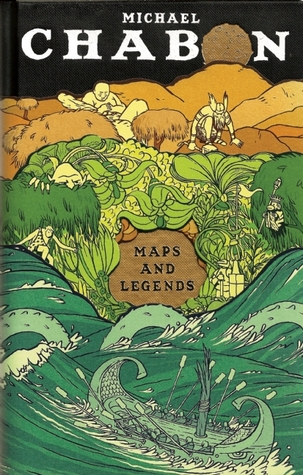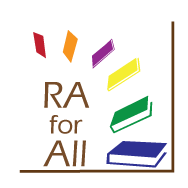Here’s the newest list. Click here for past lists. Reminder, they make awesome backlist options.
Kitchens of the Great
Midwest: A Novel
by J. Ryan Stradal
Published:7/28/2015
by Pamela Dorman Books
ISBN: 9780525429142
“This novel is quirky and colorful. The story revolves around chef Eva Thorvald and the people who influence her life and her cooking. With well-drawn characters and mouthwatering descriptions of meals, Kitchens of the Great Midwest will appeal to readers who like vivid storytelling. Foodies will also enjoy this delicious tale.”
Anbolyn Potter, Chandler Public Library, Chandler, AZ
Circling the Sun: A Novel
by Paula McLain
Published: 7/28/2015 by Ballantine Books
ISBN: 9780345534187
“I couldn’t stop reading this fascinating portrayal of Beryl Markham, a complex and strong-willed woman who fought to make her way in the world on her terms. McLain paints a captivating portrait of Africa in the 1920s and the life of expats making their home there. Highly, highly recommended.”
Halle Eisenman, Beaufort County Library, Hilton Head, SC
Kiss Me: A Novel
by Susan Mallery
Published: 6/30/2015/2015 by HQN Books
ISBN: 9780373780129
“As always, Ms. Mallery has given us a fantastic read. As soon as I pick up her titles, I can’t put them down until I have finished them. They are feel-good, heartwarming —
I need more synonyms. I love seeing all the previous characters, the friendships and families that have formed since Chasing Perfect came out five years ago. Thanks, Ms. Mallery, for another amazing read.”
Jenelle Klavenga, Marshalltown Public Library, Marshalltown, IA
Second Chance Summer: A Novel
by Jill Shalvis
Published: 6/30/2015 by Grand Central Publishing
ISBN: 9781455586738
“I loved this book, a perfect start to the newest series by Jill Shalvis. It contains the same humor, heart and heat that we’ve come to expect from this author. It should be on every romance reader’s summer reading list.”
Carole Tossman, Howard County Library System, Columbia, MD
Speaking in Bones: A Novel
by Kathy Reichs
Published: 7/21/2015 by Bantam
ISBN: 9780345544049
“This book lives up to the expectations we have for Kathy Reichs. A compelling and dangerous mystery, lots of medical details, and good characterization make this a title that will be easy to recommend!”
Leslie Johnson, Jefferson County Public Library, Lakewood, CO
Those Girls: A Novel
by Chevy Stevens
Published: 7/7/2015 by St. Martin’s Press
ISBN: 9781250034588
“Those Girls follows the lives of the Campbell sisters. After running away from their alcoholic father, they find themselves caught in a worse situation when they are kidnapped. As events spiral out of control, they manage to escape and create new lives. This is a tale that will captivate readers and show just how strong the bond between family members can be.”
Annice Sevett, Willmar Public Library, Willmar, Minnesota
Maybe in Another Life: A Novel
by Taylor Jenkins Reid
Published: 7/7/2015 by Washington Square Press
ISBN: 9781476776880
“Hannah Martin has just moved back to LA after ending a relationship. Her best friend, Gabby, takes her out to a bar on her first night home. Enter Ethan, the One Who Got Away, and suddenly, Hannah has to decide if she’ll leave with Ethan or Gabby. We follow Hannah after choosing both options, alternating chapters to explore the consequences of each. A must for anyone who loves a hankie with their books!”
Tracy Babiasz, Chapel Hill Public Library, Chapel Hill, NC
Crooked Heart: A Novel
by Lissa Evans
Published: 7/28/2015 by Harper
ISBN: 9780062364838
“Crooked Heart is a rewarding, addictive read. Orphaned ten-year-old bookworm Noel, sent away to rural St. Albans, finds himself under the reluctant guardianship of Vee, aka Mrs. Vera Sledge. Amidst a chaotic background of bombings and uncertain futures, Vee and Noel gradually form a powerful bond. I recommend this darkly humorous, honest, and complex story. It is book club heaven.”
Janet Schneider, Oceanside Library, Oceanside, NY
Love Lies Beneath: A Novel
by Ellen Hopkins
Published: 7/21/2015 by Atria Books
ISBN: 9781476743653
“An intriguing tale of sex, romance and deception. Tara is a brilliant, sexy forty-something. She’s enjoying being single until Cavin, a handsome doctor, enters her exam room. They have a hot and steamy romance but there is much, much more to this story. Ellen Hopkins commands each word on the page from her prose to verse.”
Laura Hartwig, Meriden Public Library, Meriden, CT
Good and Cheap: Eat Well on $4/Day
by Leanne Brown
Published: 7/14/2015 by Workman Publishing Company
ISBN: 9780761184997
“Wow! This is a great looking book. Great for beginners with its details about ingredients and kitchen tools. Best of all, each recipe is made from ingredients that most everyone has; there were only two ingredients in the whole book that I don’t own. This book is just what my doctor ordered, literally. I am a basic cook and like simple and tasty. This book is OUTSTANDING!
Nancy Chalk, Charlton Public Library, Charlton, MA











